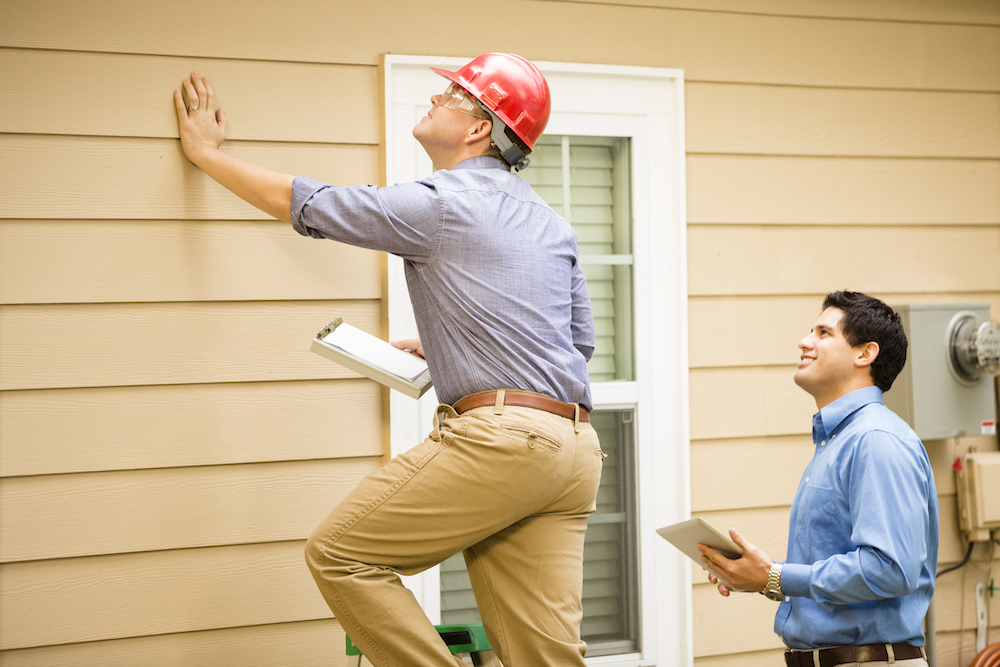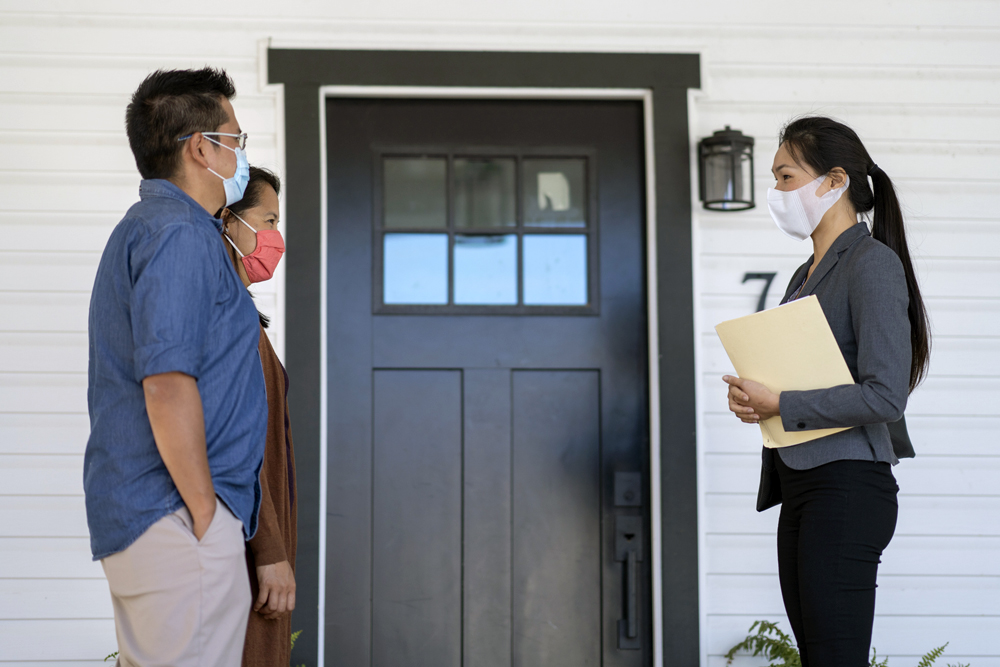
Research Neighbourhoods
Knowledge is power, and a little research goes a long way towards helping you determine what you can afford – and where. While it’s tempting to start by looking at every property in your price range, take the time to do preliminary research into average home prices in different neighbourhoods that you’re considering. If possible, visit the neighbourhoods to see how you feel about the vibe. If you can find a home with the features you want in a less-expensive neighbourhood that you love, it’s a cost-saving win.
Related: Here’s What $500K Can Buy Throughout Canada in 2020

Trust the Pros
Let’s face it: buying a home is a big investment, so it can be tempting to try to go it alone and DIY your home-purchasing journey to try to get a better deal on your own (though, it’s usually up to the seller to pay both commissions). Trying to be your own realtor, however, can actually cost you more in the long run. Experienced realtors can know what to look for when you’re shopping for a home, and they can help save you money through negotiation. Here are seven important questions to ask your real estate agent before buying.

Go Local for Home Insurance
Taking the time to find the best home insurance for your new space ensures your biggest investment is protected should unexpected challenges like fire, water damage or theft come your way. However, not all home insurance is equal. With local knowledge of British Columbia, BCAA’s expert insurance advisors better understand the unique coverage needs of homes in BC. BCAA also makes it easy and convenient for British Columbians to find the right coverage: you can buy BCAA home insurance online, over the phone (1.888.268.2222) or in person at one of their local service locations – whichever works for you. Plus, you can save 5% if you buy online, and BCAA Members save up to 20%!

Do the Home Inspection
Sometimes, you have to spend money to save money. In today’s competitive real estate market, it can be tempting to forgo a home inspection to make your offer more attractive to sellers, but the gamble could cost you a fortune in the long run. While a home inspection will typically run you at least a few hundred dollars, it can also reveal thousands of dollars in unexpected repairs or damage that you could face once you move in.
Related: Buying an Older Home? Watch Out for These Red Flags

Play Pretend
Whether you’ve been renting or living with family, making your first home purchase also means a change in your monthly housing costs. While it’s important to do the math on paper, it’s hard to really know what it will feel like to make those monthly payments. To help, you can try your own personal affordability test. Estimate the monthly housing costs you might have to pay for potential properties (including things like mortgage payments, strata fees for condos, insurance and property tax). Then, set aside the difference between what you pay now and what your new payments could potentially be. At the end of six months or a year, you’ll be able to better gauge what you can afford – and you’ll have collected extra savings for your down payment.
Related: This is the Income Required to Own a Home in Canada’s Hottest Real Estate Markets

Cover Your Condo
Property insurance is essential for any type of home you buy, including condos. While your new condo’s strata insurance might cover damage to the building, it won’t protect what’s inside your unit. Luckily, condo insurance doesn’t have to be expensive – in BC, for example, BCAA Condo Insurance coverage starts at just $35 per month – which is small price to pay to protect your investment long-term.
Related: Buying a Condo vs. House: Scott McGillivray Weighs the Pros and Cons

Avoid Bidding Wars
In competitive real estate markets like Vancouver, bidding wars are more common than not. However, getting caught up in the emotion of a bidding war can end up pushing you way over your budget. Be prepared with a top price you’re willing to pay – and stick to it.
Related: What to Expect for the Canadian Real Estate Market in 2021

Daily Matters
This money-saving homebuying tip from Scott McGillivray is pretty simple: be strategic about what day of the week you shop for your first home. As Scott explains, homes listed earlier in the week (on Monday or Tuesday) often sell for less than those listed later in the week (on Thursday or Friday). Shop early, and you just might save.
Related: Common Mistakes Made by First-Time Homebuyers, According to Scott McGillivray

Make Sure You’re Pre-Approved
Getting pre-approved for a mortgage is a smart move to help you determine your home budget, but it can also help save you money when you go to make an offer. When buying a house, the dollar value of your offer is just one aspect of what makes your offer attractive to sellers. With this in mind, getting pre-approved for a mortgage can make your offer a better bet for the seller than someone else’s that may be a bit higher – but that has no financing in place.

Consider Other Income Options
One tried-and-true way to get the most from your property is to purchase a home that allows for partial rental options, like a laneway suite or basement suite. Renters can help offset the cost of your first mortgage, but keep in mind that it does take work to be a landlord. Of course, if you’re considering renting out part of your property, be sure to top up your home insurance – this is a necessary step to protect your investment and help save you money in the long-term. Should any issues arise, just speak to a trusted insurance agent.
Related: Must-Know Tips for Homeowners Looking to Rent Out Their Property
HGTV your inbox.
By clicking "SIGN UP” you agree to receive emails from HGTV and accept Corus' Terms of Use and Corus' Privacy Policy.




